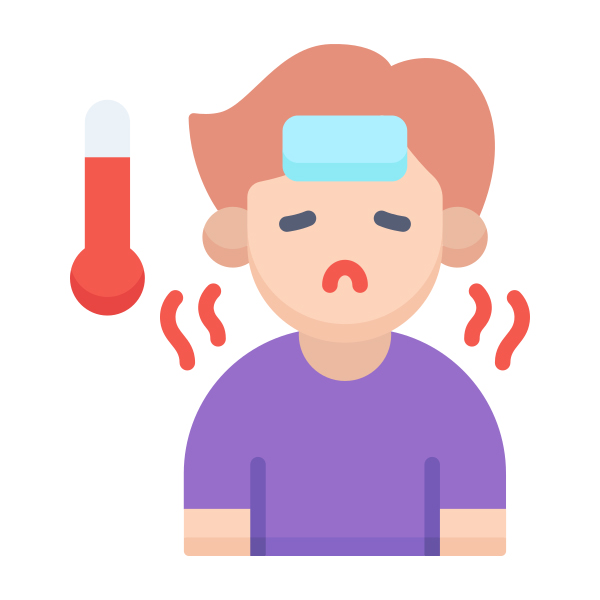Viral fever is a collective term used for fever originating from a variety of viral infections. The average human body temperature is approximately 98.4°F (37.1°C). Any degree of temperature above this average value is usually considered as fever. Viral fever can be low-grade (below 100°F) in a few infections, and it can be high-grade (above 100°F) in viral infections such as Dengue, etc.
Viral fever is usually acute and more common during season changes, e.g. Monsoon. Viral fever duration for most viral infections is 3-5 days; however, in a few of the viral infections, fever can last up to 14 days.
Viral fever is generally not considered a disease or illness but is a result/indication of an underlying viral infection. It is also common in kids and people with weak immunity—fever results from the fight your body has with the viral antigens and indicates viral infection. At times, viral fever can go undiagnosed, and it could develop into severe complications. It should not be overlooked if you have a fever; you should seek medical care to diagnose and identify the infection. We recommend you consult our team of medical experts if you experience fever.
What are the symptoms of viral fever?
Symptoms associated with a viral fever can vary depending on the type of the viral infection and can also vary from person to person. Common viral fever symptoms related to the majority of viral infections include the following:
- High-grade fever (can go up to 103-104°F)
- Headache (mild to severe)
- Sore throat
- Runny nose or nasal congestion
- Muscle pain (myalgia) and joint pain (arthralgia)- mild to severe
- Dehydration
- Diarrhoea or/and abdominal pain
- Nausea / Vomiting
- Fatigue
- Dizziness
- Chills
- Redness or burning of eyes
- Facial swelling
- Rashes on skin
- Loss of appetite
Severe symptoms such as high-grade fever (103-104°F) require immediate medical care to prevent any untoward effect on the body functions.
Usually, viral fever is self-limiting, and the symptoms tend to subside or resolve on their own as the cycle of the virus nears its end. However, if the symptoms persist or worsen, you should consult your doctor and seek medical advice. You can consult our medical care experts for further guidance on the symptoms of viral fever and advice to manage them effectively.
Viral Fever Diet and Regimen
- Do not eat or drink at roadside restaurants or rest stops.
- Maintain proper hydration.
- Consume liquids and foods high in vitamin C.
- Consume a liquid diet and a light diet rich in fruits.
- Adequate rest is required.
Viral Fever Homeopathic Treatment
Homoeopathy has a wide range of applications in the treatment of all fevers. Homeopathy considers the entire picture of the fever and the disease. It considers a person’s physical and mental makeup and treats each person as an individual. Arsenicum album, Influenzinum, Belladonna, Bryonia, Gelsemium, Rhus tox, Eupatorium perf., and other remedies can help cure viral fever and post-viral cough completely without causing any discomfort to patients.
In this day and age, homoeopathic medicines can be the most effective and safest way to treat viral fevers.
Sweet pills are also beneficial to children. Remember, never self-medicate; instead, use homoeopathic medicines under the supervision of a homoeopathic physician.)

